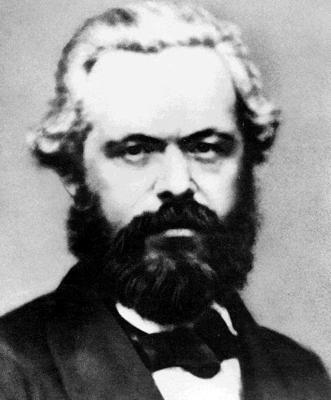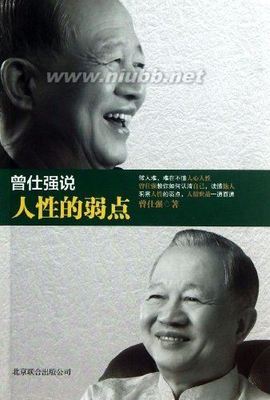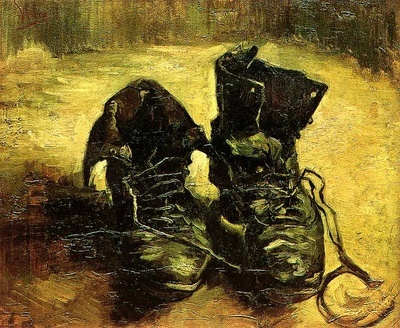青年在选择职业时的思考
马克思
自然本身给动物规定了它应该遵循的活动范围,动物也就安分地在这个范围内活动,不试图越出这个范围,甚至不考虑有其他什么范围的存在。神也给人指定了共同的目标──使人类和他自己趋于高尚,但是,神要人自己去寻找可以达到这个目标的手段;神让人在社会上选择一个最适合于他、最能使他和社会都得到提高的地位。
能有这样的选择是人比其他生物远为优越的地方,但是这同时也是可能毁灭人的一生、破坏他的一切计划并使他陷于不幸的行为。因此,认真地考虑这种选择──这无疑是开始走上生活道路而又不愿拿自己最重要的事业去碰运气的青年的首要责任。
每个人眼前都有一个目标,这个目标至少在他本人看来是伟大的,而且如果最深刻的信念,即内心深处的声音,认为这个目标是伟大的,那他实际上也是伟大的,因为神决不会使世人完全没有引导,神总是轻声而坚定地作启示。
但是,这声音很容易被淹没;我们认为是灵感的东西可能须臾而生,同样可能须臾而逝。也许,我们的幻想油然而生,我们的感情激动起来,我们的眼前浮想联翩,我们狂热地追求我们以为是神本身给我们指出的目标;但是,我们梦寐以求的东西很快就使我们厌恶──于是我们的整个存在也就毁灭了。
因此,我们应当认真考虑:所选择的职业是不是真正使我们受到鼓舞?我们的内心是不是同意?我们受到的鼓舞是不是一种迷误?我们认为是神的召唤的东西是不是一种自欺?但是,不找出鼓舞的来源本身,我们怎么能认清这些呢?
伟大的东西是光辉的,光辉则引起虚荣心,而虚荣心容易给人鼓舞或者是一种我们觉得是鼓舞的东西;但是,被名利弄得鬼迷心窍的人,理智已无法支配他,于是他一头栽进那不可抗拒的欲念驱使他去的地方;他已经不再自己选择他在社会上的地位,而听任偶然机会和幻想去决定它。
我们的使命决不是求得一个最足以炫耀的职业,因为它不是那种使我们长期从事而始终不会情绪低落的职业,相反,我们很快就会觉得,我们的愿望没有得到满足,我们理想没有实现,我们就将怨天尤人。
但是,不只是虚荣心能够引起对这种或那种职业突然的热情。也许,我们自己也会用幻想把这种职业美化,把它美化成人生所能提供的至高无上的东西。我们没有仔细分析它,没有衡量它的全部份量,即它让我们承担的重大责任;我们只是从远处观察它,然而从远处观察是靠不住的。
在这里,我们自己的理智不能给我们充当顾问,因为它既不是依靠经验,也不是依靠深入的观察,而是被感情欺骗,受幻想蒙蔽。然而,我们的目光应该投向哪里呢?在我们丧失理智的地方,谁来支持我们呢?
是我们的父母, 他们走过了漫长的生活道路, 饱尝了人世的辛酸。──我们的心这样提醒我们。
如果我们通过冷静的研究,认清所选择的职业的全部份量,了解它的困难以后,我们仍然对它充满热情,我们仍然爱它。觉得自己适合它,那时我们就应该选择它,那时我们既不会受热情的欺骗,也不会仓促从事。
但是,我们并不能总是能够选择我们自认为适合的职业;我们在社会上的关系,还在我们有能力对它们起决定性影响以前就已经在某种程度上开始确立了。
我们的体质常常威胁我们,可是任何人也不敢藐视它的权利。
诚然,我们能够超越体质的限制,但这么一来,我们也就垮得更快;在这种情况下,我们就是冒险把大厦筑在松软的废墟上,我们的一生也就变成一场精神原则和肉体原则之间的不幸的斗争。但是,一个不能克服自身相互斗争的因素的人,又怎能抗拒生活的猛烈冲击,怎能安静地从事活动呢?然而只有从安 静中才能产生伟大壮丽的事业,安静是唯一生长出成熟果实的土壤。
尽管我们由于体质不适合我们的职业,不能持久地工作,而且工作起来也很少乐趣,但是,为了克尽职守而牺牲自己幸福的思想激励着我们不顾体弱去努力工作。如果我们选择了力不能胜任的职业,那么,我们决不能把它做好,我们很快就会自愧无能,并对自己说,我们是无用的人,是不能完成自己使命的社会成员。由此产生的必然结果就是妄自菲薄。还有比这更痛苦的感情吗?还有比这更难于靠外界的赐予来补偿的感情吗?妄自菲薄是一条毒蛇,它永远啮噬着我们心灵,吮吸着其中滋润生命的血液,注入厌世和绝望的毒液。
如果我们错误地估计了自己的能力,以为能够胜任经过周密考虑而选定的职业,那么这种错误将使我们受到惩罚。即使不受到外界指责,我们也会感到比外界指责更为可怕的痛苦。
如果我们把这一切都考虑过了,如果我们生活的条件容许我们选择任何一种职业;那么我们就可以选择一种能使我们最有尊严的职业;选择一种建立在我们深信其正确的思想上的职业;选择一种给我们提供广阔场所来为人类进行活动、接近共同目标(对于这个目标来说,一切职业只不过是手段)即完美境地的职业。
尊严就是最能使人高尚起来、使他的活动和他的一切努力具有崇高品质的东西,就是使他无可非议、受到众人钦佩并高于众人之上的东西。
但是,能给人以尊严的只有这样的职业,在从事这种职业时我们不是作为奴隶般的工具,而是在自己的领域内独立地进行创造;这种职业不需要有不体面的行动(哪怕只是表面上不体面的行动),甚至最优秀的人物也会怀着崇高的自豪感去从事它。最合乎这些要求的职业,并不一定是最高的职业,但总是最可取的职业。
但是,正如有失尊严的职业会贬低我们一样,那种建立在我们后来认为是错误的思想上的职业也一定使我们感到压抑。
这里,我们除了自我欺骗,别无解救办法,而以自我欺骗来解救又是多么的糟糕!那些不是干预生活本身,而是从事抽象真理研究的职业,对于还没有坚定的原则和牢
固、不可动摇的信念的青年是最危险的。同时,如果这些职业在我们心里深深地扎下了根,如果我们能够为它们的支配思想牺牲生命、竭尽全力,这些职业看来似乎还是最高尚的这些职业能够使才能适合的人幸福,但也必定使那些不经考虑、凭一时冲动就仓促从事的人毁灭。
相反,重视作为我们职业的基础的思想,会使我们在社会上占有较高的地位,提高我们本身的尊严,使我们的行为不可动摇。
一个选择了自己所珍视的职业的人,一想到他可能不称职时就会战战兢兢──这种人单是因为他在社会上所居地位是高尚的,他也就会使自己的行为保持高尚。
在选择职业时,我们应该遵循的主要指针是人类的幸福和我们自身的完美。不应认为,这两种利益是敌对的,互相冲突的,一种利益必须消灭另一种的;人类的天性本身就是这样的:人们只有为同时代人的完美、为他们的幸福而工作,才能使自己也过得完美。
如果一个人只为自己劳动,他也许能够成为著名的学者、大哲人、卓越诗人,然而他永远不能成为完美无疵的伟大人物。
历史承认那些为共同目标劳动因而自己变得高尚的人是伟大人物;经验赞美那些为大多数人带来幸福的人是最幸福的人;宗教本身也教诲我们,人人敬仰的理想人物,就曾为人类牺牲了自己──有谁敢否定这类教诲呢?
如果我们选择了最能为人类福利而劳动的职业,那么,重担就不能把我们压倒,因为这是为大家而献身;那时我们所感到的就不是可怜的、有限的、自私的乐趣,我们的幸福将属于千百万人,我们的事业将默默地、但是永恒发挥作用地存在下去,面对我们的骨灰,高尚的人们将洒下热泪。
Reflections of a Young Man
on The Choice of a Profession
Source: MECW Volume 1
Written: between August 10 and 16, 1835
First published: in Archiv für die Geschichte des Sozialismus undder Arbeiterbewegung, 1925
Translated from the Latin.
Transcribed: by Sally Ryan.
Nature herself has determined the sphere of activity in which theanimal should move, and it peacefully moves within that sphere,without attempting to go beyond it, without even an inkling of anyother. To man, too, the Deity gave a general aim, that of ennoblingmankind and himself, but he left it to man to seek the means bywhich this aim can be achieved; he left it to him to choose theposition in society most suited to him, from which he can bestuplift himself and society.
This choice is a great privilege of man over the rest of creation,but at the same time it is an act which can destroy his whole life,frustrate all his plans, and make him unhappy. Seriousconsideration of this choice, therefore, is certainly the firstduty of a young man who is beginning his career and does not wantto leave his most important affairs to chance.
Everyone has an aim in view, which to him at least seems great, andactually is so if the deepest conviction, the innermost voice ofthe heart declares it so, for the Deity never leaves mortal manwholly without a guide; he speaks softly but with certainty.
But this voice can easily be drowned, and what we took forinspiration can be the product of the moment, which another momentcan perhaps also destroy. Our imagination, perhaps, is set on fire,our emotions excited, phantoms flit before our eyes, and we plungeheadlong into what impetuous instinct suggests, which we imaginethe Deity himself has pointed out to us. But what we ardentlyembrace soon repels us and we see our whole existence inruins.
We must therefore seriously examine whether we have really beeninspired in our choice of a profession, whether an inner voiceapproves it, or whether this inspiration is a delusion, and what wetook to be a call from the Deity was self-deception. But how can werecognise this except by tracing the source of the inspirationitself?
What is great glitters, its glitter arouses ambition, and ambitioncan easily have produced the inspiration, or what we took forinspiration; but reason can no longer restrain the man who istempted by the demon of ambition, and he plunges headlong into whatimpetuous instinct suggests: he no longer chooses his position inlife, instead it is determined by chance and illusion.
Nor are we called upon to adopt the position which offers us themost brilliant opportunities; that is not the one which, in thelong series of years in which we may perhaps hold it, will nevertire us, never dampen our zeal, never let our enthusiasm grow cold,but one in which we shall soon see our wishes unfulfilled, ourideas unsatisfied, and we shall inveigh against the Deity and cursemankind.
But it is not only ambition which can arouse sudden enthusiasm fora particular profession; we may perhaps have embellished it in ourimagination, and embellished it so that it appears the highest thatlife can offer. We have not analysed it, not considered the wholeburden, the great responsibility it imposes on us; we have seen itonly from a distance, and distance is deceptive.
Our own reason cannot be counsellor here; for it is supportedneither by experience nor by profound observation, being deceivedby emotion and blinded by fantasy. To whom then should we turn oureyes? Who should support us where our reason forsakes us?
Our parents, who have already travelled life's road and experiencedthe severity of fate - our heart tells us.
And if then our enthusiasm still persists, if we still continue tolove a profession and believe ourselves called to it after we haveexamined it in cold blood, after we have perceived its burdens andbecome acquainted with its difficulties, then we ought to adopt it,then neither does our enthusiasm deceive us nor does overhastinesscarry us away.
But we cannot always attain the position to which we believe we arecalled; our relations in society have to some extent already begunto be established before we are in a position to determinethem.
Our physical constitution itself is often a threatening obstacle,and let no one scoff at its rights.
It is true that we can rise above it; but then our downfall is allthe more rapid, for then we are venturing to build on crumblingruins, then our whole life is an unhappy struggle between themental and the bodily principle. But he who is unable to reconcilethe warring elements within himself, how can he resist life'stempestuous stress, how can he act calmly? And it is from calmalone that great and fine deeds can arise; it is the only soil inwhich ripe fruits successfully develop.
Although we cannot work for long and seldom happily with a physicalconstitution which is not suited to our profession, the thoughtnevertheless continually arises of sacrificing our well-being toduty, of acting vigorously although we are weak. But if we havechosen a profession for which we do not possess the talent, we cannever exercise it worthily, we shall soon realise with shame ourown incapacity and tell ourselves that we are useless createdbeings, members of society who are incapable of fulfilling theirvocation. Then the most natural consequence is self-contempt, andwhat feeling is more painful and less capable of being made up forby all that the outside world has to offer? Self-contempt is aserpent that ever gnaws at one's breast, sucking the life-bloodfrom one's heart and mixing it with the poison of misanthropy anddespair.
An illusion about our talents for a profession which we haveclosely examined is a fault which takes its revenge on usourselves, and even if it does not meet with the censure of theoutside world it gives rise to more terrible pain in our heartsthan such censure could inflict.
If we have considered all this, and if the conditions of our lifepermit us to choose any profession we like, we may adopt the onethat assures us the greatest worth, one which is based on ideas ofwhose truth we are thoroughly convinced, which offers us the widestscope to work for mankind, and for ourselves to approach closer tothe general aim for which every profession is but a means -perfection.
Worth is that which most of all uplifts a man, which imparts ahigher nobility to his actions and all his endeavours, which makeshim invulnerable, admired by the crowd and raised above it.
But worth can be assured only by a profession in which we are notservile tools, but in which we act independently in our own sphere.It can be assured only by a profession that does not demandreprehensible acts, even if reprehensible only in outwardappearance, a profession which the best can follow with noblepride. A profession which assures this in the greatest degree isnot always the highest, but is always the most to bepreferred.
But just as a profession which gives us no assurance of worthdegrades us, we shall as surely succumb under the burdens of onewhich is based on ideas that we later recognise to be false.
There we have no recourse but to self-deception, and what adesperate salvation is that which is obtained byself-betrayal!
Those professions which are not so much involved in life itself asconcerned with abstract truths are the most dangerous for the youngman whose principles are not yet firm and whose convictions are notyet strong and unshakeable. At the same time these professions mayseem to be the most exalted if they have taken deep root in ourhearts and if we are capable of sacrificing our lives and allendeavours for the ideas which prevail in them.
They can bestow happiness on the man who has a vocation for them,but they destroy him who adopts them rashly, without reflection,yielding to the impulse of the moment.
On the other hand, the high regard we have for the ideas on whichour profession is based gives us a higher standing in society,enhances our own worth, and makes our actionsun-challengeable.
One who chooses a profession he values highly will shudder at theidea of being unworthy of it; he will act nobly if only because hisposition in society is a noble one.
But the chief guide which must direct us in the choice of aprofession is the welfare of mankind and our own perfection. Itshould not be thought that these two interests could be inconflict, that one would have to destroy the other; on thecontrary, man's nature is so constituted that he can attain his ownperfection only by working for the perfection, for the good, of hisfellow men.
If he works only for himself, he may perhaps become a famous man oflearning, a great sage, an excellent poet, but he can never be aperfect, truly great man.
History calls those men the greatest who have ennobled themselvesby working for the common good; experience acclaims as happiest theman who has made the greatest number of people happy; religionitself teaches us that the ideal being whom all strive to copysacrificed himself for the sake of mankind, and who would dare toset at nought such judgments?
If we have chosen the position in life in which we can most of allwork for mankind, no burdens can bow us down, because they aresacrifices for the benefit of all; then we shall experience nopetty, limited, selfish joy, but our happiness will belong tomillions, our deeds will live on quietly but perpetually at work,and over our ashes will be shed the hot tears of noblepeople.
 爱华网
爱华网


